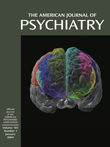In recent years several developments have encouraged better recognition and management of both normal and pathological reactions to serious stress: a more sophisticated diagnostic formulation of acute stress disorder and posttraumatic stress disorder; a more realistic appraisal of human capacities and the need to deliberately cultivate psychobiological resilience; and evidence of the therapeutic effectiveness of selective serotonin reuptake inhibitors, like sertraline.
It may be difficult for some younger professionals to appreciate that there was a time when we limited the notion of “shell shock” or “battle fatigue” to seriously incapacitating behavioral responses to combat conditions. Less obvious instances of stress-induced disturbances were largely ignored, unless they reached such pathological proportions that the patient could be awarded a well-established psychiatric diagnosis, such as mood disorder or schizophrenia. The rest of us were left to sink or swim with our emotional pangs, avoidances, and numbing. Now, however, we have diagnoses, crude though they may be, that offer coherence, soften the stigma of weakness, restore morale, and provide a blueprint for action.
Dr. Horowitz proposes an integrated approach to therapy embracing psychotherapy, pharmacotherapy, and psychosocial interventions. He has “organized the book by stages of treatment because essential explanatory principles encompass a range of diagnostic entities; it is easier for clinicians to understand actions based on these principles than to consult and study guidelines for each separate disorder.” As he elaborates on his six stages—evaluation, initial support, exploration of meanings, improving coping, working through, and termination—the specifics seem quite straightforward and traditional.
The book is definitely enlivened by pithy case histories demonstrating the wide range of events that can trigger stress reactions as well as the many forms such reactions may assume. Nineteen-year-old Laura is depressed and angry after she survives an automobile accident in which a drunk driver kills both her parents; Harold escapes a hotel fire, and his numbness and anxiety rapidly dissipate; it takes Sophia—a former model, blinded and forced to have her leg amputated after an automobile accident—seven years to put her life back together; Alex and Andrea lose their only child, and their marriage is a shambles; Francisco becomes deeply depressed after being robbed at knifepoint; and 20-year-old Sally is partially paralyzed after falling from a dilapidated stepladder and furious at her father who encouraged her to climb up it in the first place.
Dr. Horowitz seems most comfortable addressing the psychological aspects of his topic. Frankly, I found his use of illustrative figures more confusing than helpful and his discussion of biological aspects somewhat less than satisfactory. And I regret he makes little or no reference to existential issues and spiritual strengths that clearly affect how we interpret and how well we cope with unusual stress. All in all this is a pleasant book; even the more experienced among us will enjoy the read and pick up a few insightful gems along the way.

